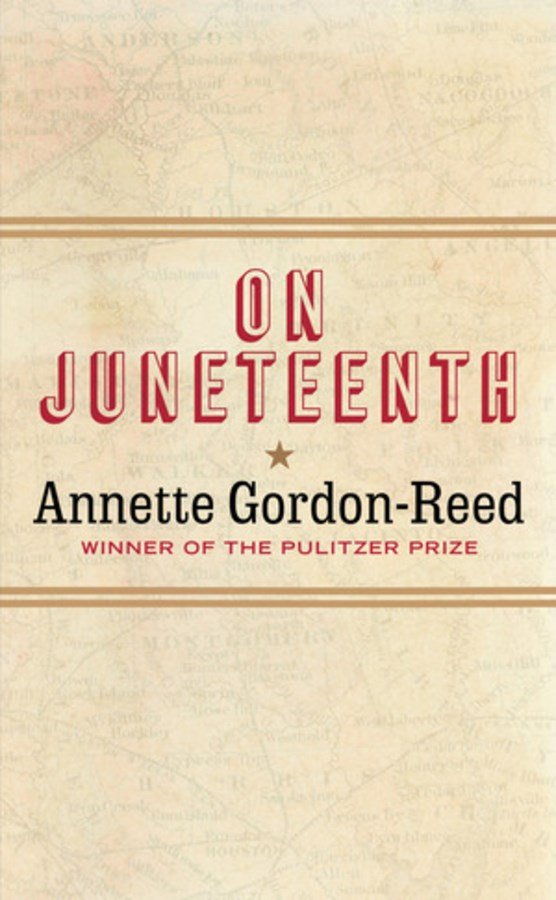On 'On Juneteenth' - and a couple other recommended nonfiction reads
I am writing this on Juneteenth. I read On Juneteenth by Annette Gordon-Reed last year after she appeared at the 2023 Key West Literary Seminar. I loved it and wrote up a recommendation for the Shelf Help feature that the Monroe County Public Library provides to the Keys Weekly newspapers:
On Juneteenth. Annette Gordon Reed. Winner of the Pulitzer Prize.
Black history is American history, and vice versa – and few writers make that more clear than Annette Gordon-Reed, the Harvard law professor who won a Pulitzer for her book The Hemingses of Monticello. More recently, as Juneteenth was recognized as a public holiday, she wrote a book explaining the origins of that celebration. In this slim volume, she also explores the history of Texas, which goes beyond the cowboys and oilmen of popular imagination. Gordon-Reed is from Texas, where her family goes way back, so the book is also something of a memoir. Gordon’s straightforward prose makes the delivery of the events she’s recounting even more powerful. There’s no doubt this lawyer-historian has her facts down, even if they are facts that have been ignored or denied through most of our history. I learned a lot from this relatively short book, about Texas and America and Annette Gordon-Reed. It’s kind of like taking a college seminar with an especially gifted and generous professor. And lucky for us, no exam at the end.
I have, in recent years, become a big fan of the slim work of nonfiction. In my 20s and 30s, I loved diving into a giant tome and just living there for awhile. I still like that - occasionally - but perhaps getting older has made me appreciate my limited time. For whatever reason, here are a couple other nonfiction books I have really enjoyed in the last couple years that won’t eat up weeks of your life. The first two were also Shelf Help recommendations.
Why Fish Don’t Exist by Lulu Miller:
Taxonomy is classification – in biology, it’s ordering the natural world into species, genus, family, etc. It’s a way of making sense of the vast chaos around us – and sometimes in us. DNA has shaken up the established taxonomies of some animals (so a falcon is actually more of a parrot than a hawk????) but in the late 19th and early 20th centuries, scientists were going with what they could see in front of them. David Starr Jordan was an early exemplar of the field, collecting almost 20 percent of the known species of fish at the time. Yet his rigorous work did not spare him from chaos in his own life – including some he inflicted on others. Lulu Miller’s book starts out as a biography of Jordan but becomes much more – a memoir, a meditation on finding your purpose in life while coping with the chaos all around us – and a little dash of true crime that’s an eye-opener on her original subject.
Dickens and Prince by Nick Hornby:
Charles Dickens was a white guy who lived in 19th century England and was famous for writing novels. Prince was a Black guy who lived in 20th and 21st century America and was famous for making music. On the face of it, they would appear to have little in common. Yet novelist and screenwriter Nick Hornby has written a lovely extended essay about how both were incredible examples of creativity and productivity. They did have a few things in common – both were raised in poverty, with family trauma shaping their lives and art. Both produced their greatest works as relatively young men. And sadly, both died at 58. This book isn’t just compare-and-contrast; it’s an insightful profile of each man as an artist, with a dash of personal reflection from Hornby thrown in.
Twilight of Democracy: The Seductive Lure of Authoritarianism by Anne Applebaum:
I didn’t write a Shelf Help recommendation for this book (yet) - though we do have it at the Monroe County Public Library. I picked it up because of the title and its size - it’s 224 pages, but it’s a physically small book, less than 5x8 inches. The title sold me because, like a lot of people, I have spent the last few years wondering what the hell is happening and more importantly why? Applebaum does a good job answering these questions, with a heavy emphasis on Eastern Europe, which she knows best. And her conclusions aren’t quite as depressing as the title might lead you to believe.
